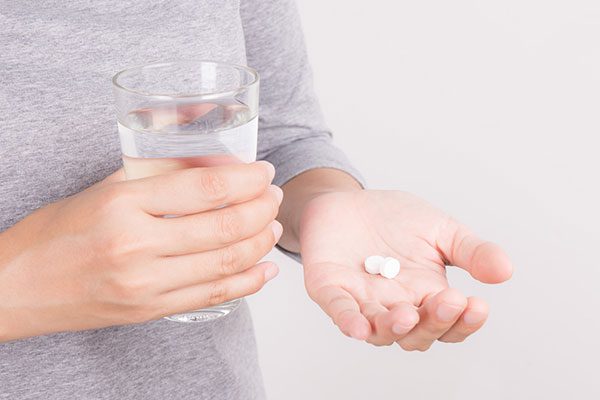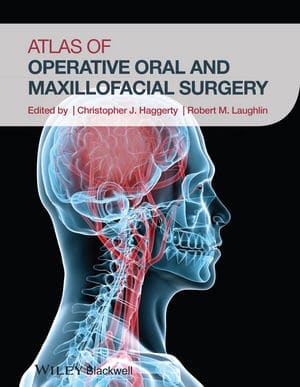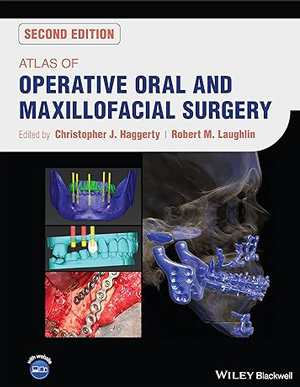Post-Op Instructions for Tooth Extractions and Bone Grafting
 Bleeding, bruising and swelling are NORMAL EVENTS in the healing process and ARE TO BE EXPECTED following surgery. Bleeding typically subsides within 24 hours after your procedure and is typically well controlled by biting forcefully on a piece of gauze over your surgical site. Gauze should be changed every 30-40 minutes until bleeding stops and should be removed for meals and while sleeping. Bruising may occur several days after the procedure and will resolve within 7-14 days. Swelling is a natural component of the healing process and typically peaks at 72-96 hours after surgery. Swelling can be decreased by the use of ice packs, Ibuprofen and limiting your physical activity for the first week after your procedure. As your swelling increases, you may develop limited jaw opening. This is typically an effect of swelling and will resolve with time. If limited opening persists after your swelling subsides, please contact our office.Please take unused prescribed pain medications from your procedure to your pharmacy in a timely manner for proper disposal.
Bleeding, bruising and swelling are NORMAL EVENTS in the healing process and ARE TO BE EXPECTED following surgery. Bleeding typically subsides within 24 hours after your procedure and is typically well controlled by biting forcefully on a piece of gauze over your surgical site. Gauze should be changed every 30-40 minutes until bleeding stops and should be removed for meals and while sleeping. Bruising may occur several days after the procedure and will resolve within 7-14 days. Swelling is a natural component of the healing process and typically peaks at 72-96 hours after surgery. Swelling can be decreased by the use of ice packs, Ibuprofen and limiting your physical activity for the first week after your procedure. As your swelling increases, you may develop limited jaw opening. This is typically an effect of swelling and will resolve with time. If limited opening persists after your swelling subsides, please contact our office.Please take unused prescribed pain medications from your procedure to your pharmacy in a timely manner for proper disposal.
Nausea and vomiting may occur after surgery. It is most frequently associated with taking pain medication on an empty stomach. If nausea and vomiting occur, please discontinue your prescribed pain medication and take Ibuprofen/Naproxen (Advil, Motrin, Aleve) or Tylenol for your pain control. If the nausea continues, please call our office for further instructions. Please do not worry about sutures (stitches). Sutures have been placed to close very small incisions within your mouth. Sutures typically dissolve between 2-10 days depending on the type of suture placed. If a suture loosens or comes out, there is no need to panic as the surgical site will heal fine. The type of bone graft used is called a particulate graft. This means that the graft is composed of many small pieces of bone that are the texture of sand. The advantages of using a particulate graft include a low incidence of infection and the ability to precisely compress the graft into the surgical area. It is common to feel a few sand-like pieces of the graft on your tongue for the first few days after surgery as the surgical site is typically overfilled with graft material in order to establish a solid foundation for dental implant placement. Please avoid picking at the area with your tongue or fingers, please avoid directly brushing the grafted site, please avoid vigorous (you may lightly rinse with salt water) rinsing and spitting for the first week after your procedure and please avoid lifting your lips and cheek to view the grafted area as this may tear or loosen sutures at the site. Antibiotics may be prescribed depending on the procedure performed. Antibiotics should be discontinued immediately and our office contacted should a rash occur after the administration of antibiotics. Should any life-threatening swelling develop after the administration of antibiotics, proceed directly to the hospital. Note that antibiotics may interfere with the effectiveness of oral contraceptives (birth control). Please take unused prescribed pain medications from your procedure to your pharmacy in a timely manner for proper disposal.
The Day of Surgery
- Some degree of discomfort and pain is expected after your numbness subsides. If you are an adult patient, at the first sign of pain or discomfort, you may take 600-800 mg of Ibuprofen (Advil, Motrin) unless prohibited by your physician. Pediatric patients should take age and weight appropriate Ibuprofen as described on the children’s Ibuprofen package. If you cannot take Ibuprofen/Aspirin products, you may substitute Tylenol for Ibuprofen. If you are still uncomfortable after taking Ibuprofen, you may take the prescribed pain medication. Please ensure to take the prescribed pain medication and antibiotics (if prescribed) as directed and with food and water. As pain medication and antibiotics may cause nausea and vomiting, it is very important to not take them on an empty stomach.
- TO REPEAT: Please take Ibuprofen once your numbness wears off and please take your prescribed pain medication ONLY if needed and after eating a small meal.
- Do not disturb the area of surgery. Avoid straws, rigorous chewing, spitting and rinsing that could delay healing, restart bleeding and loosen a suture if one was placed.
- Minor bleeding or oozing from your procedure site is normal. Light bleeding or oozing may continue throughout the day of your surgery. For the first 2-3 hours after your surgery, if you are experiencing bleeding, please keep pressure on the surgical site (s) by biting down lightly on gauze. The gauze should be folded and placed directly over your surgical site (s) and pressure should be applied for 30 minute intervals by biting on the gauze.
- Adequate nutrition is essential for healing. Please DO NOT chew on the side of your bone graft. We encourage you to eat a small meal as soon as possible after your procedure. Please remove your gauze, eat a soft meal (soup, yogurt, smoothie, shakes, mashed potatoes, pasta, macaroni and cheese, grilled cheese sandwich, oatmeal, toast, pancakes, eggs, soft donut, etc.) and then replace your gauze over your grafted site and bite down with light pressure.
- Fluid intake is important after your procedure. PLEASE AVOID USING STRAWS FOR THE FIRST 7 DAYS AFTER YOUR PROCEDURE. Using a straw may dislodge the bone graft or promote premature suture loosening.
- LIMIT PHYSICAL ACTIVITY FOR THE NEXT 7 DAYS. Overexertion may lead to increased pain, bleeding and swelling to the surgical site
- Please refrain from drinking alcoholic beverages during your post-operative period and while taking the prescribed pain medication.
- Please take all of your regularly scheduled medications (diabetes, high blood pressure, etc.) at their normal time and dose after your procedure unless specifically directed otherwise.
- If your procedure was performed with IV sedation (general anesthesia) or with oral sedation, please do not drive an automobile for 24 hours after your procedure.
- AVOID SMOKING (cigarette, cigar, vaping) AFTER YOUR PROCEDURE. Smoking will essentially increase all post-op complications associated with oral procedures. Smoking promotes increased pain, dry socket formation, infection, graft and implant failure, communications between your oral cavity and overlying sinuses and delayed healing.
The Day Following Surgery
- On the morning after your procedure, please begin brushing your teeth as you normally would. Please avoid brushing the surgical site as it may stimulate bleeding or premature suture loss.
- Please begin salt water rinses. Add ½ teaspoon of salt to a large glass of warm water and carefully rinse your mouth. Please repeat 3-4 times a day until complete healing of your tissues. Please AVOID the use of hydrogen peroxide, Water Picks and syringe irrigations as they may dislodge developing blood clots and lead to delayed healing and dry socket formation.
Day #3 After Your Surgery and Thereafter
- Peak pain and swelling typically occurs on post-operative day #3 or 4.
- Please continue to apply ice to your face in the generalized area of your procedure for the first 3 days after surgery in order to limit swelling of the surgical site.
- On post-operative day #4, please continue your salt water rinses and begin to advance your diet from a soft diet to your normal diet. Please continue to avoid straws, smoking and extremely hard foods such as nuts, hard candy, peanut brittle, etc. Please avoid chewing directly over your extraction/grafted site.
Sinus Instructions If your grafting procedure was performed within your upper jaw and/or if a simultaneous sinus lift procedure was performed, please follow the instructions below:
- Do not blow your nose.
- Try to not sneeze. If you must sneeze, please do so with your mouth open in order to minimize the pressure on the sinus areas.
- Avoid smoking and using a straw
- Do not lift or pull your lip to look at stitches as this may tear or loosen the sutures placed
- Please take all of your prescribed antibiotics as directed
- You may (rare) have some minor bleeding from your nose for the first 24-28 hours
- If you feel congested, you may use antihistamines or decongestants. Please avoid nasal sprays unless they are saline.






